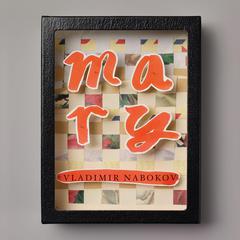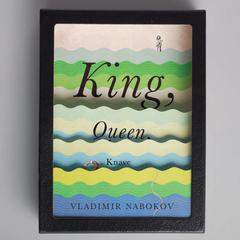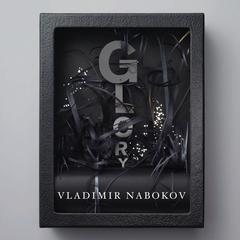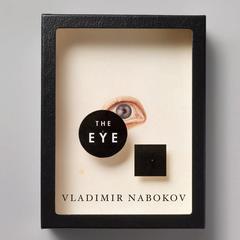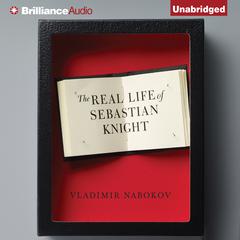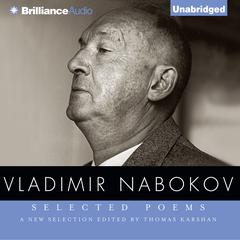 Play Audiobook Sample
Play Audiobook Sample
The Luzhin Defense Audiobook
 Play Audiobook Sample
Play Audiobook Sample
Quick Stats About this Audiobook
Total Audiobook Chapters:
Longest Chapter Length:
Shortest Chapter Length:
Average Chapter Length:
Audiobooks by this Author:
Publisher Description
Nabokov’s third novel, The Luzhin Defense, is a chilling story of obsession and madness. As a young boy, Luzhin was unattractive, distracted, withdrawn, sullen — an enigma to his parents and an object of ridicule to his classmates. He takes up chess as a refuge from the anxiety of his everyday life. His talent is prodigious and he rises to the rank of grandmaster — but at a cost: in Luzhin’s obsessive mind, the game of chess gradually supplants reality. His own world falls apart during a crucial championship match, when the intricate defense he has devised withers under his opponent’s unexpected and unpredictable lines of assault. One of the twentieth century’s master prose stylists, Vladimir Nabokov was born in St. Petersburg in 1899. He studied French and Russian literature at Trinity College, Cambridge, then lived in Berlin and Paris, where he launched a brilliant literary career. In 1940, he moved to the United States and achieved renown as a novelist, poet, critic, and translator. He taught literature at Wellesley, Stanford, Cornell, and Harvard. In 1961, he moved to Montreux, Switzerland, where he died in 1977. “[Nabokov is] the supreme master.” — The New York Times Book Review
Download and start listening now!
"This book has quite a few similarities to Lolita, one of Nabokov's best work. The protagonist Aleksandr Ivanovich Luzhin, a chess prodigy who discovered his abilities when he aunt started to teach him chess at a young age. Though unattractive and withdrawn, he quickly became a great player rising through the ranks and attaining the title of Grand Master in a matter of 10 years. As his obsession with chess grows, he becomes socially detached and physically unhealthy. During a chess tournament, he meets a young girl who was never named in the novel, but he dubs are as his "Queen". They fall in love and Luzhin eventually proposes to her. Things started to go downhill from there not because of his Queen but because of his own mind and his obsession with chess. Luzhin has a mental breakdown, which climaxes when his carefully planned defense against Turati (italian Grand Master) fails in the first moves, and the resulting game fails to produce a winner.."
— Angelica (4 out of 5 stars)
The Luzhin Defense Listener Reviews
-
" Luzhin was very hard to identify with. Almost no attempt was made to describe any kind of inner motivation to master the game of chess, only that the obsession existed. He never seemed human and no insight was given into his thought process. The destructive nature of obsession would have had a greater impact if slightly romanticized. "
— Brigette, 2/15/2014 -
" An awkward and unusual boy grows into an awkward and unusual chess champion. This is an early Russian novel of Nabokov's, translated with his help, and while it is not as deeply probing or as refined as his later English work, it features his trademark prose and his dream-like fascination with obsession, disconnection and tragedy. Bonus chess metaphors made this a no-brainer for me - I always get more interested in chess during the winter. "
— Apollo's, 1/25/2014 -
" Great book-- also a good movie, renamed to the Luzhin Defence...John Tuturro. Very good. "
— Megan, 1/13/2014 -
" This is a book that offers rare insight into the mind of a master chess player. It is rare in that it makes genius seem approachable and understandable, right up to the end, when it becomes clear how ultimately this man's mind is operating on a different plane. My only reservation is that I really couldn't see how his wife could love him so purely. She seems like a socially competent person while he seems almost sociopathic, albeit in a benign way. "
— Meredith, 1/3/2014 -
" I remembering loving this film, but I didn't love the book so much, which is sort of the wrong way around, isn't it? I think mostly it felt too "translated," and I wonder if I would have liked it better in Russian (although it would likely have taken a lot longer to read). "
— Sariah, 12/25/2013 -
" Read this in an class devoted to all Nabokov, all the time. I liked this book. Darkly creepy characters and ample symbolism throughout. If you love Nabokov, you will like this book. If you don't care for Nabokov, skip it. "
— Melissa, 12/19/2013 -
" Almost done. Nothing can be said about this great genius. "
— Rich, 12/7/2013 -
" 4 stars if you like or follow chess. Otherwise, 3.5 stars. "
— Jim, 3/29/2013 -
" Haven't read this since junior year in high school, so I can't be sure; but I remember finding the whole idea behind the book fascinating. Should pick it up again sometime. "
— Alexander, 3/23/2013 -
" An elaborate and mesmerizing tale of a genius confined to the world of chess. Exceptional in both style and substance, as Nabokov's writings always are. "
— Gela, 10/25/2012 -
" It's really unfair for a great writer such as Nabokov to be known just for Lolita!This book is amazing and it should on of the classics!Loved it! "
— Robbinsrules, 8/16/2012 -
" This one seems like you have to really pay attention to enjoy it. I got busy and wasn't able to read as consistently as I would have like. Therefor, I feel like I missed out on some of this book. Pretty good though, just felt a little lost at times. "
— Brandon, 7/12/2012 -
" I really like reading Nabokov's writing. His prose is lyrical and his comedy subtle and dark. I thought this particular story was a little aimless at times and ended somewhat abruptly. I thought some of the marginal characters were more compelling then the central couple. "
— Drew, 5/6/2012 -
" Great details, and makes me want to play some chess. "
— Jay, 10/19/2011 -
" A haunting trip into the mind of insanity and brilliance. Although I read it years ago, I cannot shake the experience. "
— Map, 8/25/2011 -
" Nabokov is always good and this is good writing. I enjoyed the exploration of organic madness and how it is misunderstood. I felt cheated by the ending and now I am frustrated because I don't know how to talk about the ending without spoiling it. "
— Daniel, 2/23/2011 -
" It's actually inaccurate to say that I read this book. After about a third of it, I just felt like there are a lot of other books out there that I'd rather read. "
— Rev., 9/15/2010 -
" Another amazing Nabokov novel, quelle motherflipping surprise. Reminded me slightly of Pnin - it has a similarly otherworldly, shambling, autistic, yet strangely sympathetic central character. Beautiful prose and a clever structure, which should probably go without saying. "
— Nick, 7/25/2010 -
" Just started. Already captivated by Nabakov's stirling prose. "
— Mr_Toad, 6/17/2010 -
" I really like reading Nabokov's writing. His prose is lyrical and his comedy subtle and dark. I thought this particular story was a little aimless at times and ended somewhat abruptly. I thought some of the marginal characters were more compelling then the central couple. "
— Drew, 6/14/2010 -
" La segunda mejor historia de ajedrez en la literatura. "
— Roberto, 4/14/2010 -
" Probably the best of his Russian novels. "
— Hamish, 2/13/2010
About Vladimir Nabokov
Vladimir Vladimirovich Nabokov (1889–1977) was one of the most prolific writers and literary critics of the twentieth century. Born in St. Petersburg, Russia, he grew up in a trilingual household and later studied Slavic and romance languages at Trinity College, Cambridge, taking his honors degree in 1922. For the next eighteen years he lived in Berlin and Paris, writing prolifically in Russian under the pseudonym “Sirin” and supporting himself through translations, lessons in English and tennis, and by composing the first crossword puzzles in Russian. Having already fled Russia and Germany, Nabokov became a refugee once more in 1940 when he was forced to leave France for the United States. There he taught at Wellesley, Harvard, and Cornell. He died in Montreux, Switzerland.






